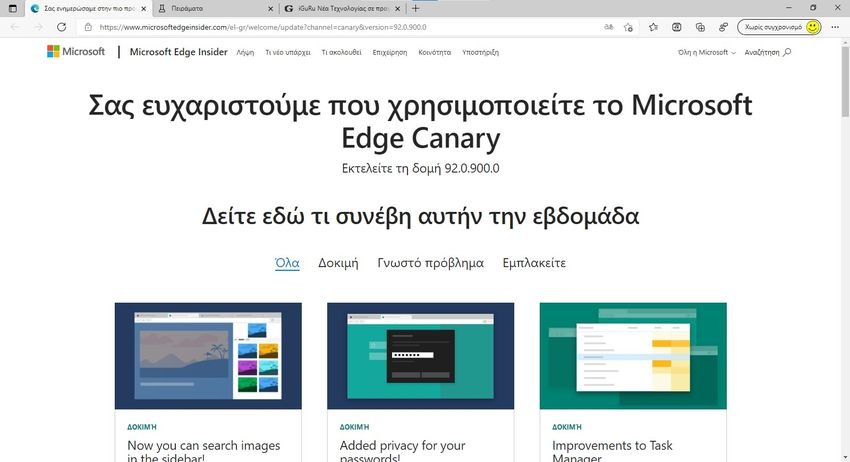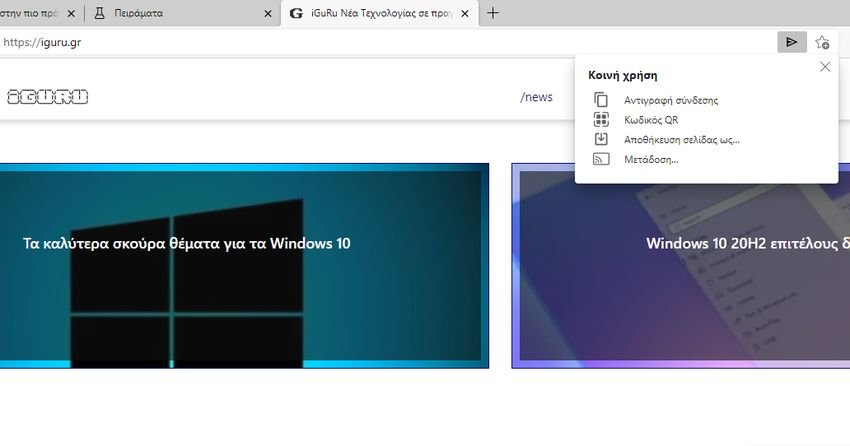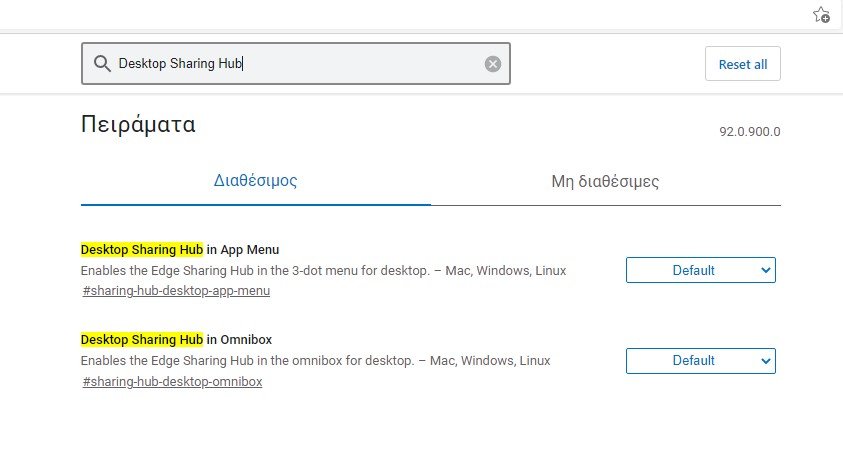The new Sharing Hub is now available in addition to Google Chrome and Microsoft Edge Canary.

A few days ago, Google released a new edition Chrome Canary, with a new experimental flag that enables something called “Sharing Hub”. Because Microsoft Edge and Google Chrome use the same engine, Sharing Hub is now also available in Edge, in the Canary version.
The Sharing Hub in Edge is a button in the address bar that combines several functions related to copying a link, creating code QR, save page and broadcast page. If you're using Edge Canary to try new features first, you can now access Sharing Hub by enabling it from flags.

Similar to Google Chrome, to enable Sharing Hub in Microsoft Edge, you need to enable some experimental flags. The following instructions apply to Windows, macOS and Linux.
1. Update Microsoft Edge Canary to version 92.0.900.0.
2. go to edge: // flags.
3. Use the search field to find the following two flags: Desktop Sharing Hub Menu and Desktop Sharing Hub in Omnibox
4. Activate both flags restart the program for the changes to take effect.

With Sharing Hub enabled in Microsoft Edge, you can click on the button that looks like a right arrow in the address bar. You will see a list of commands, same as in Google Chrome.
Microsoft plans to ship the Edge 92 to all users by the week of July 22, 2021. There is no information on whether it will include the new Sharing Hub or not. Often new features remain hidden behind experimental flags for a long time until Microsoft decides to enable them by default.





